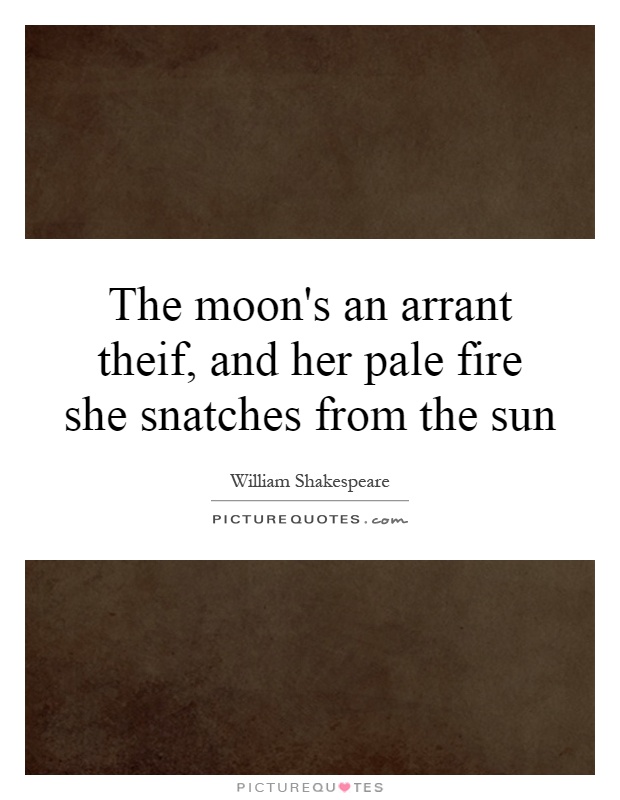The moon's an arrant theif, and her pale fire she snatches from the sun

The moon's an arrant theif, and her pale fire she snatches from the sun
In William Shakespeare's play, "Timon of Athens," the character Apemantus speaks the line, "The moon's an arrant thief, and her pale fire she snatches from the sun." This quote is a powerful metaphor that reflects the themes of deception, betrayal, and the cyclical nature of life that are prevalent throughout Shakespeare's works.The moon is often associated with mystery, illusion, and deceit in Shakespeare's plays. It is a symbol of changeability and fickleness, much like the characters in his tragedies and comedies. The idea that the moon is a thief suggests that it steals its light from the sun, the source of all life and truth. This can be interpreted as a commentary on the deceptive nature of appearances and the way in which people can be misled by false promises and illusions.
Furthermore, the image of the moon stealing its light from the sun can be seen as a metaphor for the way in which people can be corrupted by power and greed. In "Timon of Athens," the character of Timon is betrayed by those he once considered friends, who are ultimately revealed to be motivated by their own selfish desires. The moon's theft of the sun's fire can be seen as a symbol of this betrayal and the way in which people can be led astray by their own ambitions.
Additionally, the idea of the moon as a thief also reflects the cyclical nature of life and the inevitability of change. The moon waxes and wanes in a never-ending cycle, much like the rise and fall of fortunes in Shakespeare's plays. The image of the moon stealing its light from the sun suggests that nothing is permanent and that all things must eventually come to an end.
Overall, the line "The moon's an arrant thief, and her pale fire she snatches from the sun" is a powerful and evocative metaphor that encapsulates many of the themes and ideas that are central to Shakespeare's work. It serves as a reminder of the deceptive nature of appearances, the corrupting influence of power, and the cyclical nature of life.












 Friendship Quotes
Friendship Quotes Love Quotes
Love Quotes Life Quotes
Life Quotes Funny Quotes
Funny Quotes Motivational Quotes
Motivational Quotes Inspirational Quotes
Inspirational Quotes